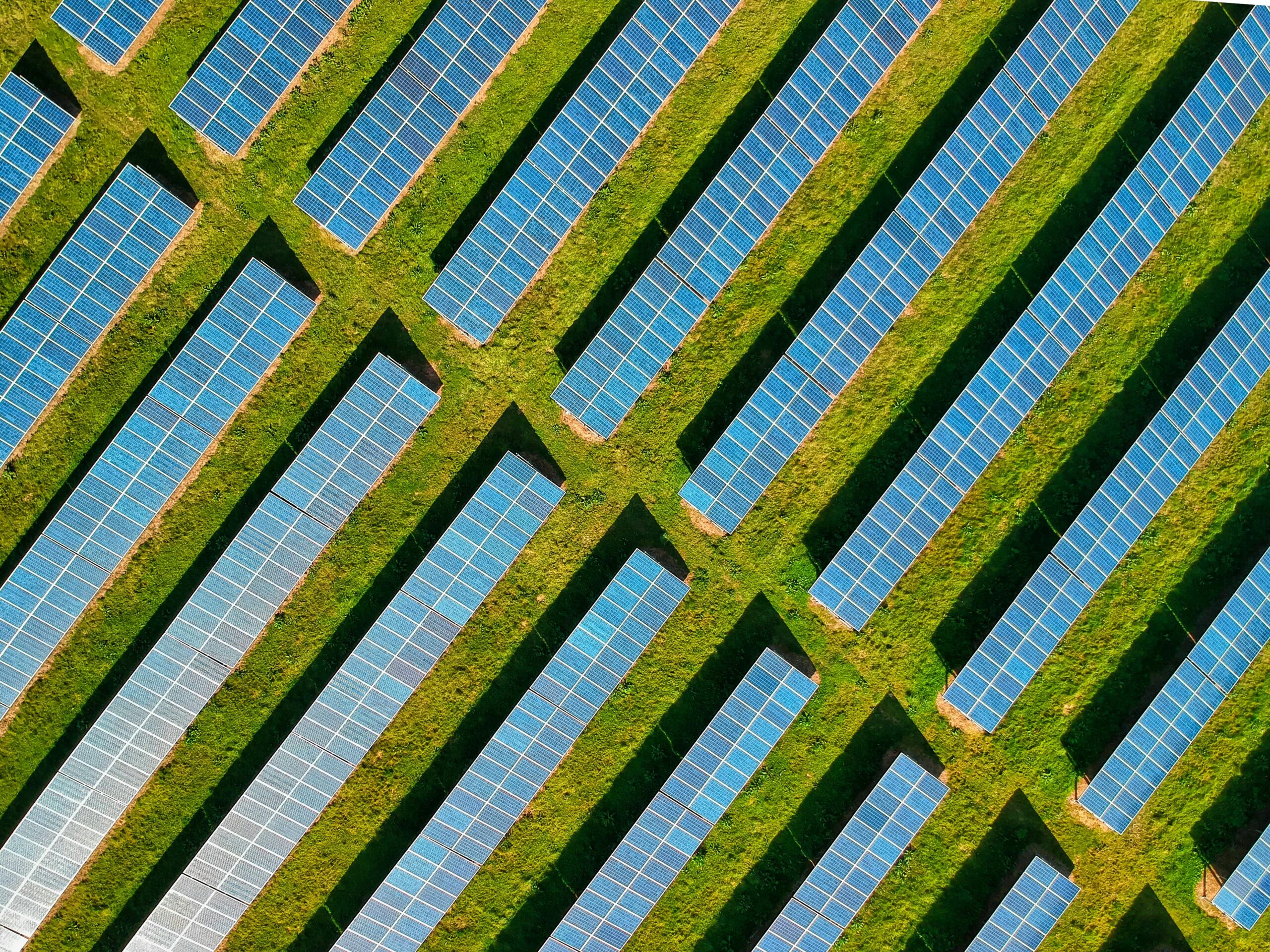Erosion control is a necessary process for all job sites. By finding a way to prevent soil from eroding and having harmful runoff damage the environment, work sites are able to be effective as well as environmentally responsible. In Alabama and Georgia, hydroseeding is one of the most trusted and effective ways to control erosion for solar farms. Because of hydroseeding’s versatility, solar farms everywhere in these states are using hydroseeding to grow grass on their work sites.
To better understand why hydroseeding is so effective at controlling erosion for solar farms, let’s take a deeper look at their partnership.
Solar Farms Can Cause Erosion
The process of developing and building a solar farm can cause erosion of the soil it’s built on. Because of the excavation and leveling process that is often necessary to install the solar panels, the landscape of the solar farm’s soil is subject to change. Also, because solar farms tend to be built in large, open areas, they can be subject to strong winds that also advance soil erosion. Hence, an erosion control measure is crucial for solar farms.
Hydroseeding Helps Control Erosion
When soil is leveled and excavated, the freshly revealed soil is especially vulnerable to erosion. To protect the environment and surrounding property from the consequences of uncontrolled erosion, it is critical for solar farms to have erosion control measures in place. Hydroseeding is perhaps the most cost efficient and effective method to control erosion on solar farms.
By spraying the hydroseeding slurry over the solar farm’s soil, a thick and healthy layer of grass is able to grow and secure the soil of a solar farm in its place. The hydroseeding slurry is a mix of local grass seeds, fertilizer, and water that fosters quick grass growth. Deep grass roots then grow from this slurry, helping to secure the solar farm’s soil in place and preventing it from eroding during heavy rainfall, wind, and other extreme weather.
Hydroseeding for Solar Farms
When solar farms are looking for erosion control solutions, they need an option that can be used to cover wide areas and reliably grow a healthy lawn of grass. Because hydroseeding is such a versatile and effective option, it has become the go-to choice for erosion control on solar farms. Hydroseeding is able to ensure minimal erosion for all solar farms because of its quick, cost effective method of growing deep grass roots that lock soil in place, even on difficult terrains.
Why Erosion Control for Solar Farms Matters
Solar farms need erosion control just like any other construction project. The harmful effects of runoff and soil erosion can damage nearby farmland, water sources and more. By taking erosion control measures like hydroseeding, solar farms not only improve the function and quality of their solar farm operation, but they also protect their surrounding environment from erosion damage.
Hydroseeding for Alabama Solar Farms with Burns Environmental
Alabama and Georgia solar farms that are looking for erosion control solutions can turn to Burns Environmental for expert hydroseeding service. Burns Environmental has the experience and expertise necessary to help with any erosion control project, from solar farms to construction sites to residential projects.
If you are looking for a beautiful and effective grass solution for a solar farm, contact Alabama’s hydroseeding company today, or give us a call for more information!

